Why Major in Philosophy?
Elie Wiesel

Kyle Smitley '07
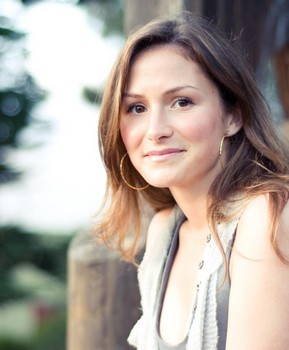
Kwame Ture (b. Stokely Carmichael)
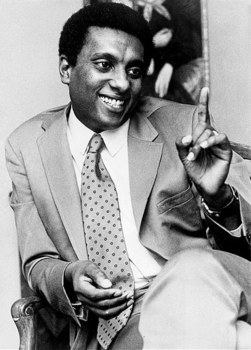
David Souter

Philip Glass

Iris Murdoch

Pearl S. Buck
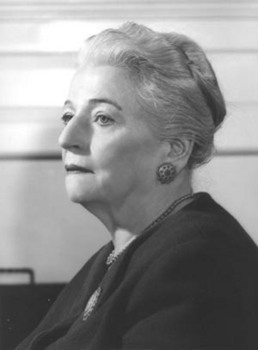
Ethan Coen

George Soros
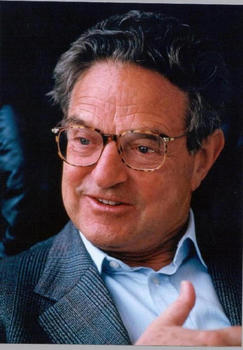
Aung San Suu Kyi

Angela Davis

Susan Sontag

Thomas Jefferson
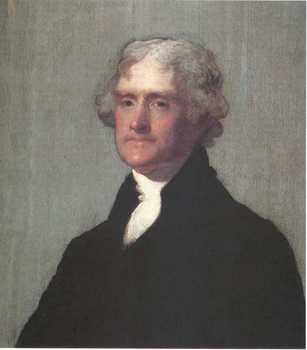
Juan Williams

Pat Buchanan
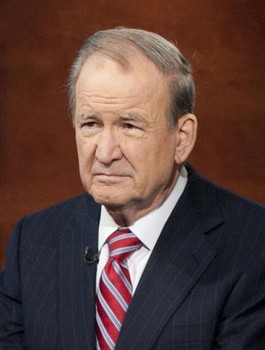
Yes, they majored in philosophy
Few phrases strike greater terror into the hearts of tuition-paying parents than this one: "Mom...Dad...I've decided to major in philosophy!" Some parents would be less horrified if their beloved child informed them of her intention to major in alchemy or phrenology. After all, what can one do with a philosophy major? This section is devoted to this question, which is probably the one most pressing questions faced by prospective philosophy majors - and their parents.
For now we will ignore the tremendous intrinsic worth of the study of philosophy; for this, we refer you to the study of philosophy itself. Our concern here is rather the practical benefits of philosophy. How does it help one prepare for a career in the much-ballyhooed "real world" or for graduate study?
Preparing for Graduate Study
The study of philosophy develops one's abilities to read and understand difficult material, to think critically, to distinguish good and bad reasoning, and to develop and defend one's own ideas. These skills are invaluable in any academic field and, we submit, are often quite useful even in the real world. Of course, proponents of many fields would claim that their disciplines hone these very same skills. Perhaps; but we claim that the study of philosophy is not just one way of developing these skills; rather, it is one of the most effective ways. One sort of evidence for this is the data concerning the performance of students with various undergraduate majors on standardized tests like the LSAT, the GMAT, and the GRE. This data is relevant because these tests are not tests of knowledge but rather tests of certain intellectual skills - indeed, they are supposed to test for the very skills mentioned above. The numbers don't lie; the performance of philosophy majors on these tests when compared to the performance of students with other majors is telling.
The chart below summarizes the percentage by which the average score of test-takers from various undergraduate majors differs from the average score of all test-takers (as reported in The Chronicle of Higher Education).
| Major | LSAT | GMAT | GRE verbal | GRE quant. |
|---|---|---|---|---|
| Philosophy | +8.7% | +11.0% | +17.6% | +4.6% |
| Arts & Music | -.05% | -1.2% | +14.5% | -5.7% |
| English | +5.6% | +4.1% | +14.5% | -5.7% |
| Foreign Langs. | +5.7% | +3.3% | +7.9% | -4.2% |
| History | +2.9% | +4.6% | +10.8% | -5.5% |
| Gen. Humanities | +4.7% | +1.8% | +7.3% | -5.0% |
| Political Science | -1.6% | +.06% | +3.5% | -5.0% |
| Psychology | +0.9% | +0.8% | +3.1% | -4.0% |
| Sociology | -7.0% | -5.0% | -5.0% | -15.0% |
| Education | -8.7% | -4.2% | -10.4% | -15.8% |
| Speech | -2.7% | not reported | -6.0% | -14.3% |
| Biology | +4.0% | +3.3% | +5.4% | +8.0% |
| Mathematics | +12.8% | +13.3% | +2.7% | +26.3% |
| Chemistry | +7.6% | +7.5% | +2.1% | +18.3% |
| Business Adm. | -4.5% | -0.8% | -9.1% | -2.3% |
| Management | -5.4% | -7.7% | not reported | not reported |
For more GRE data, look here.
Philosophers in the Workplace
Philosophy majors are increasingly in demand in the workplace. Articles appearing in the Times of London, the New York Times (and here again), CNN, and Bloomberg Businessweek address the "employability" of philosophy majors. The Wall Street Journal notes how philosophy courses are now being included in MBA programs. Forbes makes a case for majoring in philosophy, and explains "Why Getting a Liberal Arts Degree is Not a Mistake," and how liberal arts majors, including philosophy, are desirable even in tech companies. The University of Florida also offers some information about some of the career options available to philosophy majors.
After DePauw
To this point we have focused on information about philosophy majors in general. However, for DePauw students considering a philosophy major, of particular relevance is what happens to DePauw philosophy majors after graduation. In this section we provide information about the paths taken by some of our graduates over roughly the last decade.
Direct Entry into the Workforce
A study by PayScale, published in the Wall Street Journal, shows that, among those with only a bachelors' degree, philosophy majors' average salaries grow more than almost any other majors', and that philosophy majors' mid-career salaries can average higher than those who majored in stereotypically "practical" fields like political science, nursing, and business management.
Many DePauw philosophy graduates enter the workforce directly after graduation. DePauw’s strong academic reputation is attractive to potential employers, and DePauw philosophy graduates have a set of skills that enables them to learn quickly and to think, write, and speak clearly and effectively. The sorts of careers pursued by DePauw philosophy graduates who go directly into the workforce vary widely. It is impossible to detail them all here, so we will instead provide a sampling of some of the common options together with some examples of companies who have hired DePauw philosophy graduates. Since 2003, DePauw philosophy graduates have pursued careers in at least the following fields outside of law, medicine, and philosophy (we discuss those fields further below): finance (e.g. Goldman Sachs), real estate, teaching, counseling, social work, the pharmaceutical industry (e.g. Eli Lilly), Information Technology, human resources, and sales (e.g. Angie’s List, BarkBox, Qwyrk Media). Particularly interesting and unusual paths include those taken by Josh Lorenz (class of 2005), who earned his pilot’s license while at DePauw and now sells private jets, and Kyle Smitley (class of 2007, double-major in philosophy and environmental science), who started a company specializing in environmentally-friendly children’s clothing.
Law School
“Attorney” is the most common job title for DePauw graduates who majored in philosophy. Since 2003, law schools attended by DePauw philosophy graduates have included at least the following: Yale University, the University of Chicago, Duke University, Georgetown University, Indiana University, Valparaiso University, IUPUI, the University of Minnesota, Saint Louis University, Wayne State University, the University of Dayton, Texas Wesleyan University, the University of Oregon, the University of Illinois, Fordham University, the University of Denver, Marquette University, and Case Western Reserve University.
As we noted earlier, philosophy majors tend to do better than most other majors on the LSAT. A recent study found that philosophy majors are “admitted to law school at a higher percent than any other major — 75 percent.” Philosophy majors at DePauw receive intensive training in clear writing and thinking, careful argument analysis, and close reading of difficult texts. Those same skills are crucial to success in law school.
DePauw's Pre-Law Advising page gives a brief overview of preparation for law school at DePauw, including a pre-law sequence of courses recommended for students interested in a legal career.
Medical School
That’s not a typo; many DePauw philosophy graduates have gone to medical school following graduation. While most medical schools expect students to take a certain collection of courses in the natural sciences in college, it is definitely not the case that one must major in science in order to be accepted into medical school. Somewhat notoriously, the 1998 statistics from the Association of American Medical Colleges show that philosophy majors actually have the highest acceptance rate of all majors considered at 50%, compared with, for example, 35% for biology majors, 39% for chemistry majors, and 42% for physics majors.
The flexibility of DePauw’s philosophy major enables students to complete the science courses required for medical school as well as the requirements of the philosophy major in four years. Since 2003, medical schools attended by DePauw philosophy majors have included at least the following: Indiana University, the University of Cincinnati, Case Western Reserve University, and Vanderbilt University.
Here is a link to a section of the DPU website that provides a brief overview of preparation for medical school.
Graduate School in Other Fields
In the section on law school above, we noted that philosophy majors at DePauw receive intensive training in clear writing and thinking, careful argument analysis, and close reading of difficult texts. Such skills are valuable in a variety of disciplines; consequently, majoring in philosophy at DePauw can help to prepare you for graduate study in a variety of fields. Additionally, the flexibility of DePauw’s philosophy major makes it particularly easy to combine with a second major. Many DePauw philosophy majors are double-majors. Since 2003, graduate schools attended by DePauw philosophy graduates outside of the fields of law, medicine, and philosophy have included at least the following (with the field indicated in parentheses): Indiana University (public and environmental affairs), CUNY Graduate School of Journalism (journalism), Asbury Theological Seminary (theology), Pennsylvania State University (creative writing), the University of Kentucky (neuropsychology), the Southern Baptist Theological Seminary (theology), Columbia University, New York University (bioethics), Trinity Evangelical Divinity School (theology), and Northwestern University (creative writing).
John Cleese, and the Monads
You can listen to John Cleese, star of Monty Python's flying circus, explain what philosophers do, how philosophy has inspired heroes, and how it can enrich the meal of life. After all, if you can't trust John Cleese, who can you trust? Finally, we must call your attention to The 21st Century Monads, probably the greatest (and perhaps only) philosophy band ever. Their songs combine philosophical sophistication with adolescent yearning to yield soulful melodies that will leave you pining to learn more about Spinoza, Hume, Meinong, and contemporary analytic metaphysics. What other major could inspire lyrics like "my heart is broken / it's a pain-instantiatin' token", and "even if you are temporally gappy, son, you still gotta be a man"? Visit their web site, where you can find free downloadable files including:
"You Are My Everything" (A heartfelt, if slightly disturbing, ode to Spinoza)
"Counterparts" (Peppy reflection on the plurality of worlds)
"The Missing Shade of Blues" (A blues piece about hanging out with Hume)
"Slap Me Happy - I'm Temporally Gappy" (On the angst of interrupted existence)
"Meinongian Babe" (The heartbreak of non-actual love)
"I Need Your Love" (Hard to characterize in just a few words)
More information about studying philosophy at DePauw can be found here:
- DePauw Catalog list of courses in philosophy, and requirements for the major and minor
- Descriptions of the DePauw philosophy department's current course offerings
Thinking of going on to graduate school? We have prepared a guide to entering graduate school in philosophy, and the American Philosophical Association has compiled a guide to graduate programs in philosophy in the US and Canada.